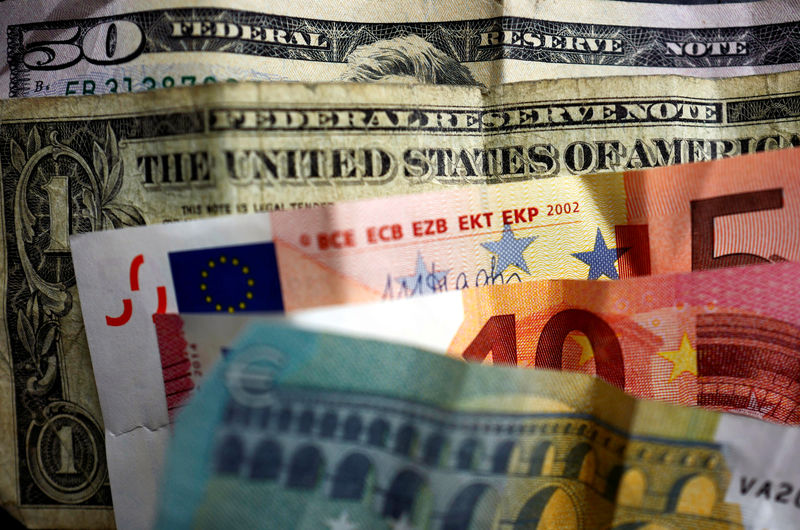Investing.com – The U.S. dollar stabilized in early European trade Thursday, after hefty losses this week as signs of a cooling U.S. economy pointed to limited headroom for the Federal Reserve to keep raising interest rates.
At 03:10 ET (07:10 GMT), the Dollar Index, which tracks the greenback against a basket of six other currencies, traded 0.1% higher at 103.162, after dropping nearly 1% so far this week.
Dollar weakened on soft employment data
The greenback has weakened this week, pulling back from a near three-month high, on indications of cooling spending and hiring in the U.S., prompting traders to pare bets for further interest rate hikes by the Federal Reserve this year.
The focus is now squarely on and data, due later in the session and then on Friday, for more cues on the U.S. economy and monetary policy.
That said, the dollar is still on course for gains of around 1% in August, fuelled by an expectation that interest rates linger longer at elevated levels.
“Second-tier US jobs data (JOLTS and ADP) have seen the dollar soften a little this week,” said analysts at ING, in a note. “However, the data have yet to prove the smoking gun that can mark the end of the Federal Reserve’s hawkish stance.”
“Stronger trends will only start to develop should we see a large downside miss on tomorrow’s release of the August NFP jobs data or a sharp rise in the unemployment rate. That would undermine the thesis that strong employment consumption can keep the Fed in hawkish mode for a lot longer than most think,” ING added.
Euro slips ahead of eurozone CPI release
fell 0.2% to 1.0903, after gaining 0.4% on Wednesday when higher-than-expected inflation numbers in and raised the pressure on the European Central Bank to keep lifting interest rates.
The is expected to rise 5.1% on an annual basis in August, a slight cooling from July’s 5.3%, but Wednesday’s data pointed to potential upside.
Meanwhile, slumped 0.8% on the month in July, an annual drop of 2.2%, data showed earlier Thursday, illustrating the damage the ECB’s aggressive monetary policy tightening was having on the region’s largest economy.
Yuan slips after Chinese PMI releases
Elsewhere, rose 0.1% to 7.2898 after PMI data released earlier Thursday showed that China’s contracted for a fifth straight month in August, albeit at a smaller-than-expected pace, while missed expectations.
The readings presented little improvement in Asia’s largest economy, as it grapples with slowing demand and a potential real estate crisis.
fell 0.1% to 1.2706, after gaining overnight as the dollar weakened, while fell 0.2% to 145.91, with the yen buoyed by stronger-than-expected data for July, although shrank more than expected.
Read the full article here




